Farming is facing issues right now which will determine its destiny for the decade, and perhaps longer.
CAP reform, the agri-food strategy to 2030, the climate action bill and its associated sectoral targets, and the Ag Climatise roadmap for the journey toward zero-carbon farming are all happening in one intense burst of activity through 2021.
But who speaks for rural Ireland and the agri-food sector in the political sphere?
This is a close look at the politicians elected from the constituencies that represent rural communities in Dáil Éireann and the European Parliament. They might make surprising reading.
Explainer - what we mean by rural Ireland
There are 38 constituencies in the Republic of Ireland currently.
For the purposes of this exercise, we are excluding the 11 Dublin constituencies, Cork North Central and South Central, and Limerick City.
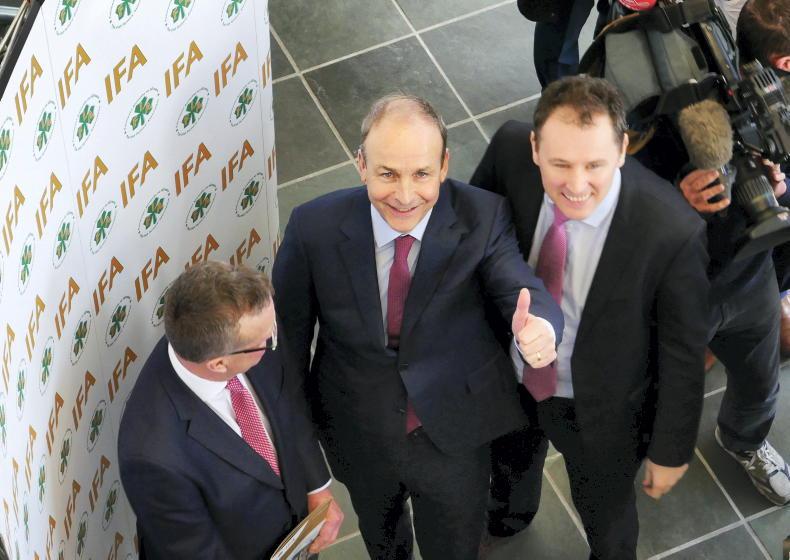
Both Fianna Fáil and Fine Gael courted the rural vote before the last election. Here, Micheál Martin arrives at the Irish Farm Centre for the IFA AGM. \ Jerome Dunne
The remaining 25 constituencies are what I am terming as “rural Ireland”.
Of course, many of the TDs in these constituencies are urban-based. Some, like Galway West and Waterford, are dominated by their cities or large towns. However, we have to draw a line somewhere.
The shape of our constituencies has changed many times over the years.
Donegal, Mayo and Tipperary have all become single constituencies, having been two, while Kildare and Meath have journeyed in the opposite direction.
However, the total of seats has barely changed, up one from 102 of 166 seats to 103 of the current 160.
Traditions breaking down
Traditionally, Fianna Fáil has been the dominant party in rural Ireland.
If we look back at the 1987 election, for instance, it won 56 of the 102 seats on offer across rural Ireland.
In 2020, that figure was more than halved to 27 seats out of the 103 on offer.
Fine Gael has fared slightly better, from a lower base. The 1987 election saw it take 19 of the 69 seats it had won in 1982.
It still held 33 seats in the rural constituencies. That shrank to 22 in last year’s election.
Combined then, the two main parties have 49 seats, down from 89. That is stark.
Independents everywhere
In 1987, there was only one independent TD from a rural constituency.
At that, Neil Blaney was from Independent Fianna Fáil, and had been a Fianna Fáil minister prior to the controversy around the Arms Trial.
Today, there are 19 independent TDs. Some of these are 'gene-pool', like Mattie McGrath and the Healy-Raes.
If anything, the grip the Healy-Raes have in Kerry is stronger than anything the Blaneys had in Donegal in their heyday.
Denis Naughten quit Fine Gael over the closure of Roscommon hospital.
Verona Murphy ran for Fine Gael in a by-eelction in 2019, was delisted from the ticket for the general election that quickly followed, and comfortably won a seat as an independent.
Peadar Toibin and Carol Nolan are actually gene-pool Sinn Féin, both leaving primarily over social/moral issues. Toibin has founded Aontu and is its sole TD.
But many rural TDs have come to prominence initially over single issues.
Cathal Berry emerged in Kildare as an advocate for members of our military forces.
Matt Shanahan in Waterford was fighting for the local hospital and related health issues.
Of all of them, Michael Fitzmaurice has perhaps been the most prominent on farming issues.
The Roscommon man speaks plainly, but intelligently, about the day-to-day issues facing farmers, especially drystock and smaller farmers, in his region.
Roscommon-Galway, one of the more rural constituencies, is also one of the most fascinating.
It once was the preserve of Fianna Fáil, as it won three of four in 1987. In 2020, Roscommon/Galway elected three TDs.
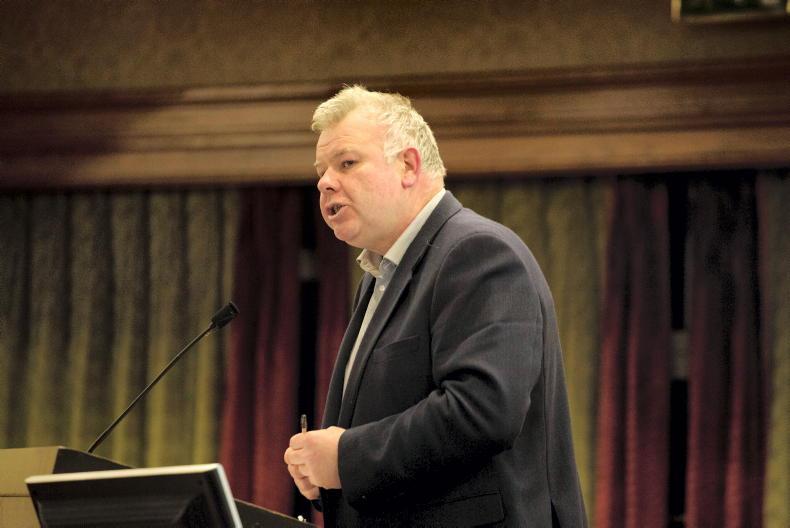
Michael Fitzmaurice. \ David Ruffles
Sitting Independent TDs Michael Fitzmaurice and Denis Naughten were comfortably re-elected, with the Sinn Féin wave seeing Claire Kerrane take the third seat.
Fitzmaurice garnered more votes than Fianna Fáil and Fine Gael combined.
I am open to correction, but I think this is the first time a rural constituency has failed to return either a Fianna Fáil or Fine Gael TD since the earliest days of our country's formation, almost a century ago.
Fine Gael stronghold lost
Similarly, Cork South West - “Collins country” - where Fine Gael traditionally boasted two of the three TDs, elected independent Michael Collins (no relation), Fianna Fáil’s Christopher O’Sullivan and the Social Democrats' Holly Cairns.
Cairns is a farmer, having come from Dublin to west Cork.
Like Pippa Hackett, she is a critic of what she sees as unsustainable practices.
Cairns attacked the Taoiseach's intervention in the Glanbia/An Taisce debate.
Hackett, an organic drystock farmer who attends cabinet as a 'super-junior' minister in the Department of Agriculture, has remained silent on that issue.
Sinn Féin surge
Of course, the Sinn Féin surge was the main story of the 2020 election.
It gained seats almost everywhere, with its 24 seats meaning it passed Fine Gael out in terms of TDs from rural constituencies.
In Cavan-Monaghan, Donegal and Louth, they won two of the five seats on offer.

Sinn Féin's agricultural spokesman Matt Carthy. \ Philip Doyle
While most of its TDs are from urban backgrounds, Matt Carthy, its agriculture spokesperson, is proving a formidable opposition spokesman.
Like most of the Independent TDs, Sinn Féin candidates and councillors were prominent at the beef factory protests in 2019.
They are tapping into the disaffection of many farmers with the failure to improve incomes outside the dairy sector.
Cabinet posts
Rural Ireland currently boasts just six of the 15 senior ministers. This is despite providing 102 of the 160 TDs.
Dublin also has six, with the other three coming from a single constituency - Cork South Central.

Minister for Agriculture Charlie McConalogue. \ Philip Doyle
The six are Charlie McConalogue (Donegal - agriculture); Norma Foley (Kerry - education); Heather Humphreys (Cavan-Monaghan - social protection and rural development); Helen McEntee (Meath East - justice) and the two Wicklowmen, Stephen Donnelly (health) and Simon Harris (higher education and science).

Pippa Hackett (Green Party) Minister of State for Land Use and Biodiversity since June 2020.
It’s fair to say that only three of these - McConalogue, Humphreys and McEntee - are from farming backgrounds.
The fact that McEntee is currently on maternity leave is a step forward for equality and representation in Irish politics, but it reduces the rural voice still further, with Humphreys taking on her responsibilities in the interim.
After the election, the INHFA’s Vincent Roddy has contrasted the total electorate for the 10 Dublin constituencies to the 10 ranging from Donegal to Limerick and across to Westmeath.
Despite there being only a slight difference in population - around 10,000 - Dublin has six extra TDs - 45 to 39. The ministerial count is six-one.
Left-leaning MEPS
There are only three constituencies in European elections now.
We can exclude Dublin’s four MEPs, leaving nine between the two sprawling constituencies of Ireland South (5) and Ireland North and West.
The striking thing is that each of these 'rural' constituencies has elected what we could describe as a maverick leftist candidate.
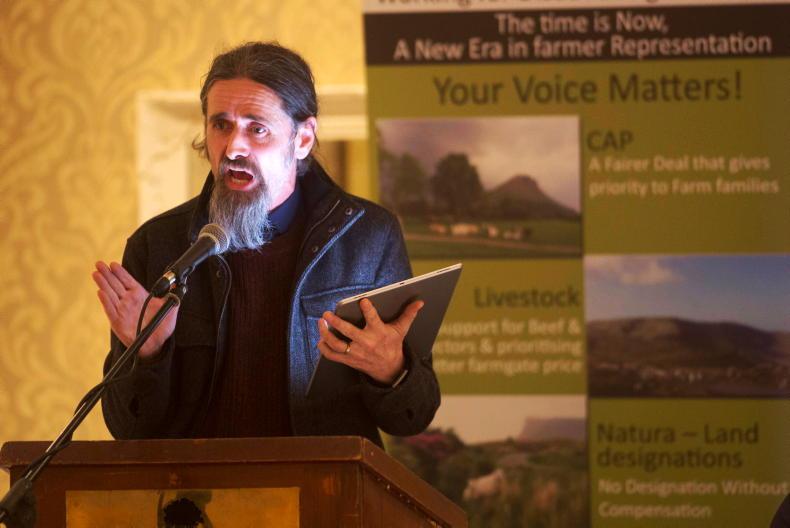
MEP Luke 'Ming' Flanagan. \ Brian Farrell
Luke 'Ming' Flanagan and Mick Wallace have support across rural communities, as well as in towns and cities.
Both were first elevated to the Dáil, with Flanagan’s strong support for turf cutters part of his coalition.
The complexity of the political picture is exemplified by his vacant Dáil seat being won by Michael Fitzmaurice, who was chair of the turf cutters, but is also a farmer and contractor.
Fine Gael holds four of the remaining seven seats, with Sinn Féin, Fianna Fáil and the Green Party gaining one each.
It should be borne in mind that this election took place in May 2019, in conjunction with local elections, where Sinn Féin did poorly. Its surge was six months away.
The four Fine Gael seats are in part due to the strength of Mairead McGuinness as a candidate, with Maria Walsh taking a seat alongside her.
With the former journalist, one of Irish farming’s strongest advocates, now Ireland’s European Commissioner, things may be different next time round.
Farming is facing issues right now which will determine its destiny for the decade, and perhaps longer.
CAP reform, the agri-food strategy to 2030, the climate action bill and its associated sectoral targets, and the Ag Climatise roadmap for the journey toward zero-carbon farming are all happening in one intense burst of activity through 2021.
But who speaks for rural Ireland and the agri-food sector in the political sphere?
This is a close look at the politicians elected from the constituencies that represent rural communities in Dáil Éireann and the European Parliament. They might make surprising reading.
Explainer - what we mean by rural Ireland
There are 38 constituencies in the Republic of Ireland currently.
For the purposes of this exercise, we are excluding the 11 Dublin constituencies, Cork North Central and South Central, and Limerick City.

Both Fianna Fáil and Fine Gael courted the rural vote before the last election. Here, Micheál Martin arrives at the Irish Farm Centre for the IFA AGM. \ Jerome Dunne
The remaining 25 constituencies are what I am terming as “rural Ireland”.
Of course, many of the TDs in these constituencies are urban-based. Some, like Galway West and Waterford, are dominated by their cities or large towns. However, we have to draw a line somewhere.
The shape of our constituencies has changed many times over the years.
Donegal, Mayo and Tipperary have all become single constituencies, having been two, while Kildare and Meath have journeyed in the opposite direction.
However, the total of seats has barely changed, up one from 102 of 166 seats to 103 of the current 160.
Traditions breaking down
Traditionally, Fianna Fáil has been the dominant party in rural Ireland.
If we look back at the 1987 election, for instance, it won 56 of the 102 seats on offer across rural Ireland.
In 2020, that figure was more than halved to 27 seats out of the 103 on offer.
Fine Gael has fared slightly better, from a lower base. The 1987 election saw it take 19 of the 69 seats it had won in 1982.
It still held 33 seats in the rural constituencies. That shrank to 22 in last year’s election.
Combined then, the two main parties have 49 seats, down from 89. That is stark.
Independents everywhere
In 1987, there was only one independent TD from a rural constituency.
At that, Neil Blaney was from Independent Fianna Fáil, and had been a Fianna Fáil minister prior to the controversy around the Arms Trial.
Today, there are 19 independent TDs. Some of these are 'gene-pool', like Mattie McGrath and the Healy-Raes.
If anything, the grip the Healy-Raes have in Kerry is stronger than anything the Blaneys had in Donegal in their heyday.
Denis Naughten quit Fine Gael over the closure of Roscommon hospital.
Verona Murphy ran for Fine Gael in a by-eelction in 2019, was delisted from the ticket for the general election that quickly followed, and comfortably won a seat as an independent.
Peadar Toibin and Carol Nolan are actually gene-pool Sinn Féin, both leaving primarily over social/moral issues. Toibin has founded Aontu and is its sole TD.
But many rural TDs have come to prominence initially over single issues.
Cathal Berry emerged in Kildare as an advocate for members of our military forces.
Matt Shanahan in Waterford was fighting for the local hospital and related health issues.
Of all of them, Michael Fitzmaurice has perhaps been the most prominent on farming issues.
The Roscommon man speaks plainly, but intelligently, about the day-to-day issues facing farmers, especially drystock and smaller farmers, in his region.
Roscommon-Galway, one of the more rural constituencies, is also one of the most fascinating.
It once was the preserve of Fianna Fáil, as it won three of four in 1987. In 2020, Roscommon/Galway elected three TDs.

Michael Fitzmaurice. \ David Ruffles
Sitting Independent TDs Michael Fitzmaurice and Denis Naughten were comfortably re-elected, with the Sinn Féin wave seeing Claire Kerrane take the third seat.
Fitzmaurice garnered more votes than Fianna Fáil and Fine Gael combined.
I am open to correction, but I think this is the first time a rural constituency has failed to return either a Fianna Fáil or Fine Gael TD since the earliest days of our country's formation, almost a century ago.
Fine Gael stronghold lost
Similarly, Cork South West - “Collins country” - where Fine Gael traditionally boasted two of the three TDs, elected independent Michael Collins (no relation), Fianna Fáil’s Christopher O’Sullivan and the Social Democrats' Holly Cairns.
Cairns is a farmer, having come from Dublin to west Cork.
Like Pippa Hackett, she is a critic of what she sees as unsustainable practices.
Cairns attacked the Taoiseach's intervention in the Glanbia/An Taisce debate.
Hackett, an organic drystock farmer who attends cabinet as a 'super-junior' minister in the Department of Agriculture, has remained silent on that issue.
Sinn Féin surge
Of course, the Sinn Féin surge was the main story of the 2020 election.
It gained seats almost everywhere, with its 24 seats meaning it passed Fine Gael out in terms of TDs from rural constituencies.
In Cavan-Monaghan, Donegal and Louth, they won two of the five seats on offer.

Sinn Féin's agricultural spokesman Matt Carthy. \ Philip Doyle
While most of its TDs are from urban backgrounds, Matt Carthy, its agriculture spokesperson, is proving a formidable opposition spokesman.
Like most of the Independent TDs, Sinn Féin candidates and councillors were prominent at the beef factory protests in 2019.
They are tapping into the disaffection of many farmers with the failure to improve incomes outside the dairy sector.
Cabinet posts
Rural Ireland currently boasts just six of the 15 senior ministers. This is despite providing 102 of the 160 TDs.
Dublin also has six, with the other three coming from a single constituency - Cork South Central.

Minister for Agriculture Charlie McConalogue. \ Philip Doyle
The six are Charlie McConalogue (Donegal - agriculture); Norma Foley (Kerry - education); Heather Humphreys (Cavan-Monaghan - social protection and rural development); Helen McEntee (Meath East - justice) and the two Wicklowmen, Stephen Donnelly (health) and Simon Harris (higher education and science).

Pippa Hackett (Green Party) Minister of State for Land Use and Biodiversity since June 2020.
It’s fair to say that only three of these - McConalogue, Humphreys and McEntee - are from farming backgrounds.
The fact that McEntee is currently on maternity leave is a step forward for equality and representation in Irish politics, but it reduces the rural voice still further, with Humphreys taking on her responsibilities in the interim.
After the election, the INHFA’s Vincent Roddy has contrasted the total electorate for the 10 Dublin constituencies to the 10 ranging from Donegal to Limerick and across to Westmeath.
Despite there being only a slight difference in population - around 10,000 - Dublin has six extra TDs - 45 to 39. The ministerial count is six-one.
Left-leaning MEPS
There are only three constituencies in European elections now.
We can exclude Dublin’s four MEPs, leaving nine between the two sprawling constituencies of Ireland South (5) and Ireland North and West.
The striking thing is that each of these 'rural' constituencies has elected what we could describe as a maverick leftist candidate.

MEP Luke 'Ming' Flanagan. \ Brian Farrell
Luke 'Ming' Flanagan and Mick Wallace have support across rural communities, as well as in towns and cities.
Both were first elevated to the Dáil, with Flanagan’s strong support for turf cutters part of his coalition.
The complexity of the political picture is exemplified by his vacant Dáil seat being won by Michael Fitzmaurice, who was chair of the turf cutters, but is also a farmer and contractor.
Fine Gael holds four of the remaining seven seats, with Sinn Féin, Fianna Fáil and the Green Party gaining one each.
It should be borne in mind that this election took place in May 2019, in conjunction with local elections, where Sinn Féin did poorly. Its surge was six months away.
The four Fine Gael seats are in part due to the strength of Mairead McGuinness as a candidate, with Maria Walsh taking a seat alongside her.
With the former journalist, one of Irish farming’s strongest advocates, now Ireland’s European Commissioner, things may be different next time round.









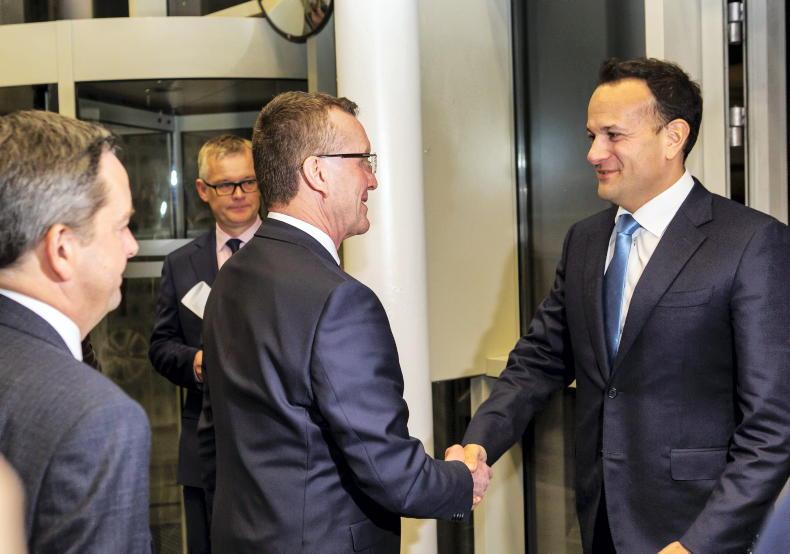

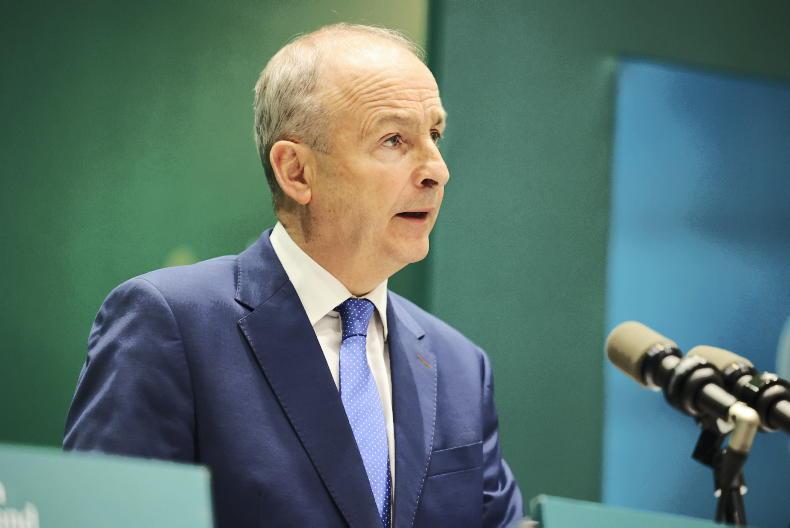

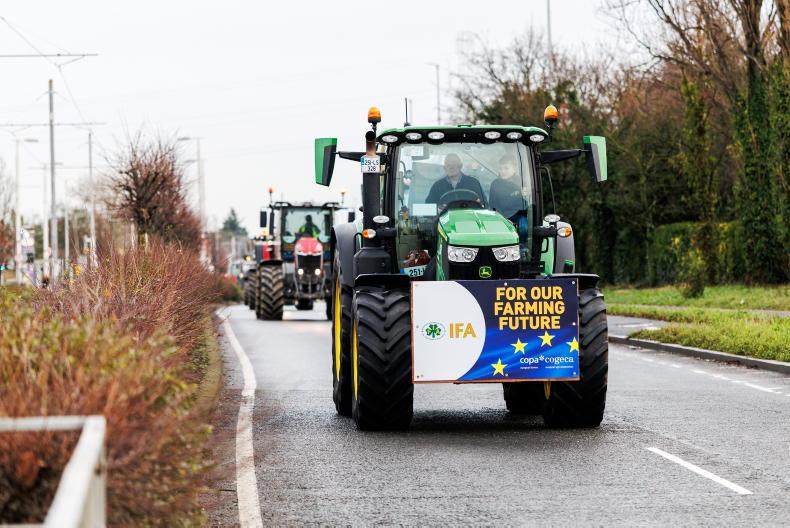
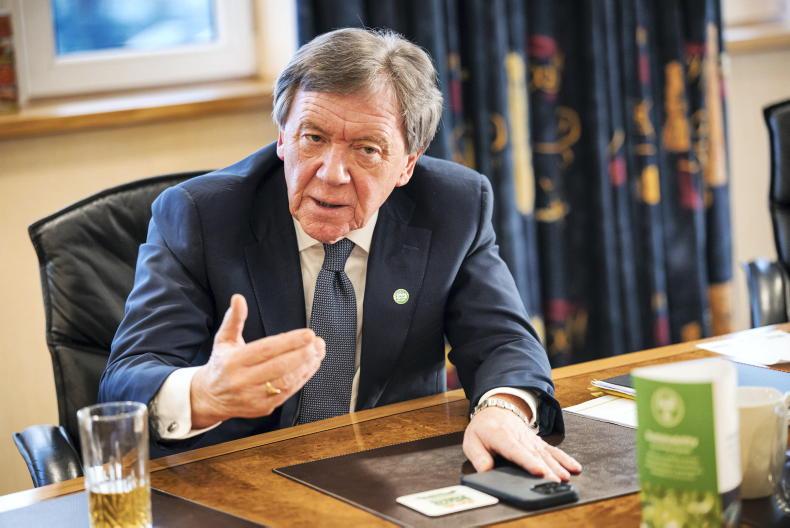
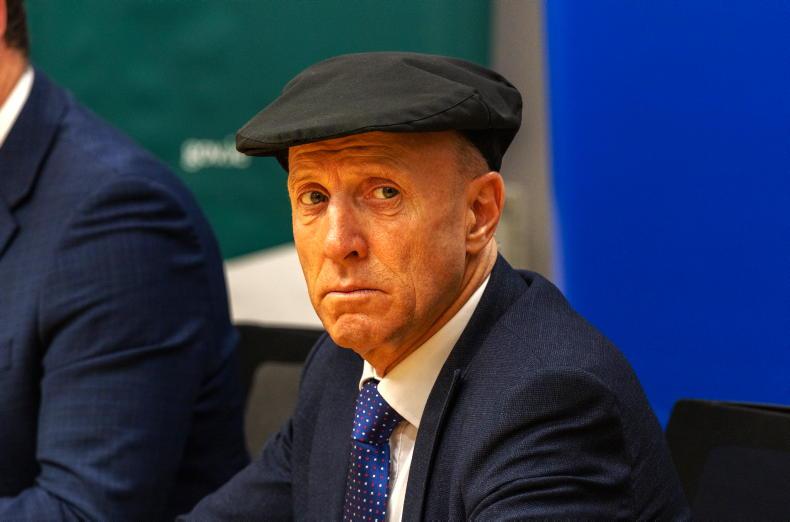
SHARING OPTIONS